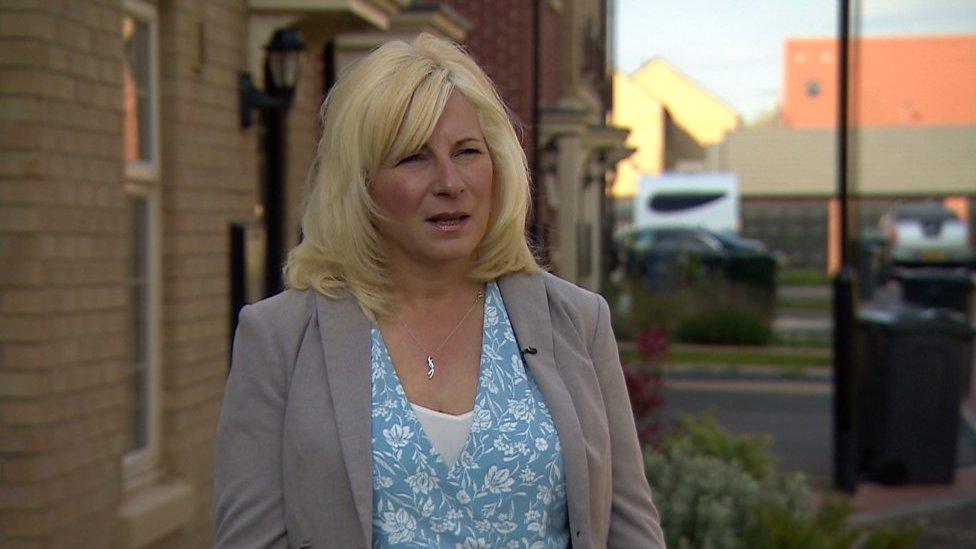Thousands of HS2 newly planted trees died in drought
- Published
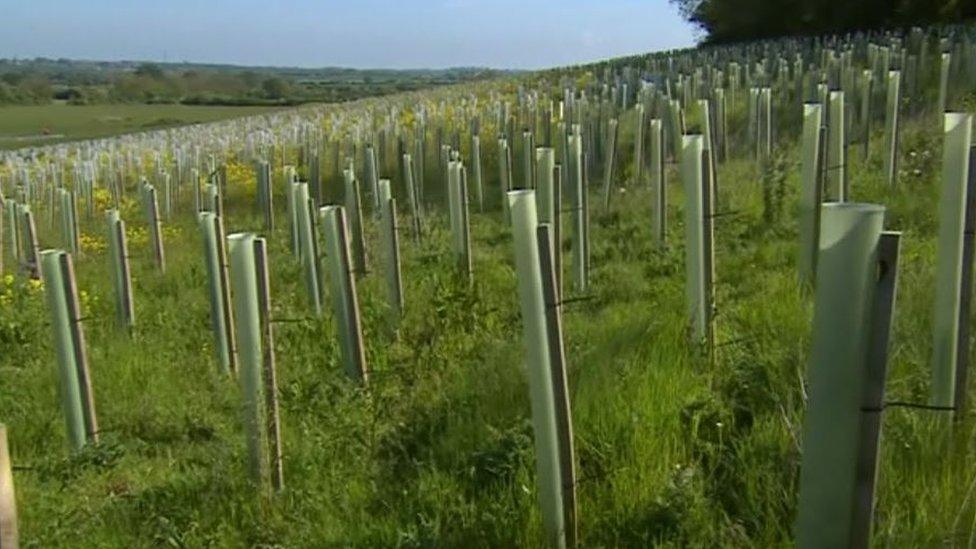
Thousands of saplings planted around HS2 have died after they were not watered
Thousands of trees planted along the High Speed Rail 2 (HS2) route will have to be replaced after saplings were not watered in last summer's drought.
Up to 350,000 saplings have so far been planted near the £56bn train line, but two Warwickshire farmers think up to 80% on their land have died.
HS2 said replacing the dead trees was more "cost effective" than watering them.
Campaign groups branded it an "environmental disaster."
HS2 said the trees died because of last year's hottest summer on record, and it planned to replant them later this year.
A total of seven million new trees - a mix of oak, hazel, dogwood and holly - are being planted to compensate for the loss of woodland as part of the HS2 programme.
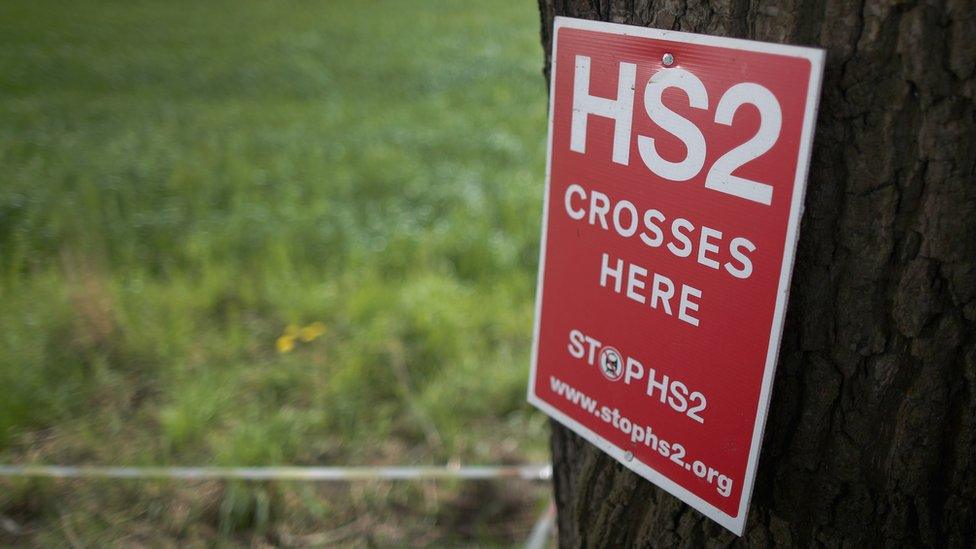
Figures from HS2 show that over 900 properties and pieces of land have been bought since 2011 to make way for the new route
One farmer from Southam estimated about 6,500 of the 8,000 trees on his land had died.
Another local farmer Derek Hyatt added: "I think there are around 800 trees planted on my land - and if 5% of those trees are alive I'd be quite surprised."
"This is an environmental disaster," said Joe Rukin from Stop HS2.
"Planting hundreds of thousands of trees up and down the line and allowing them to die because you can't be bothered to water them is almost as big a disaster as causing havoc and destruction over a hundred ancient woodlands to build this project."
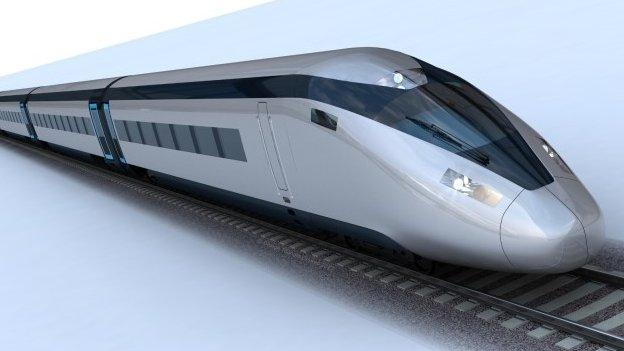
HS2 bosses say the project will transform the UK economy
The BBC has asked HS2 for the exact figure of trees that have died in Warwickshire and throughout the line to date.
A spokesman said HS2 was "committed to planting seven million trees along the route of HS2 to create a green corridor for wildlife and nature".
"Replacing these plants is more cost effective than transporting significant water quantities in the area, as well as a more ethical use of resources during unseasonable hot weather."
Phase one of HS2 is set to open in 2026.
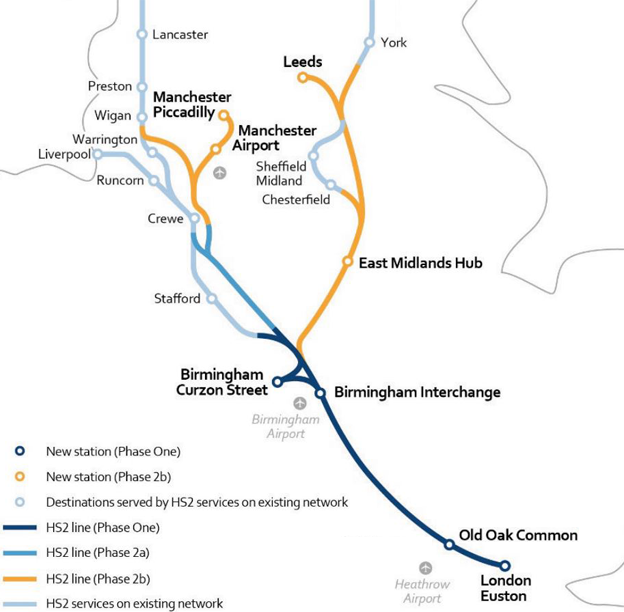

- Published6 October 2023
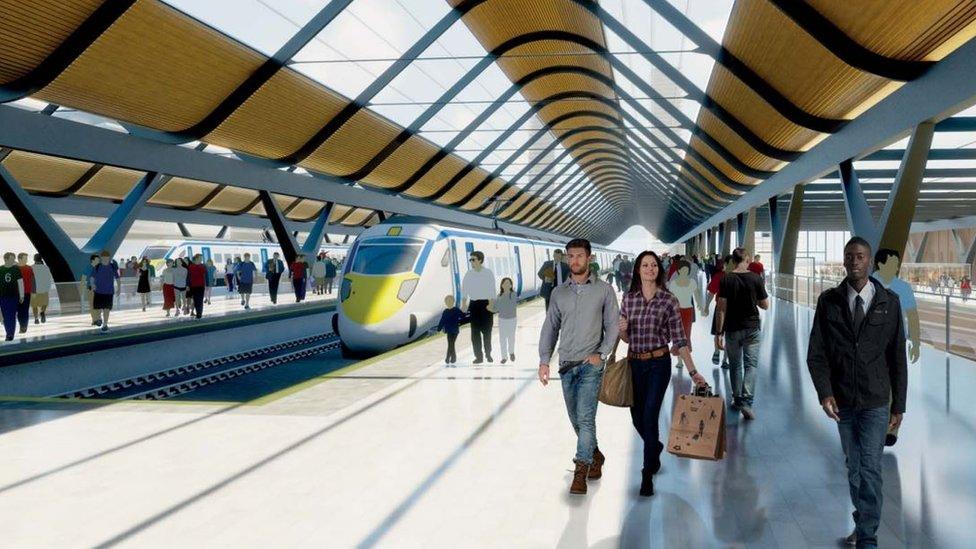
- Published18 April 2019
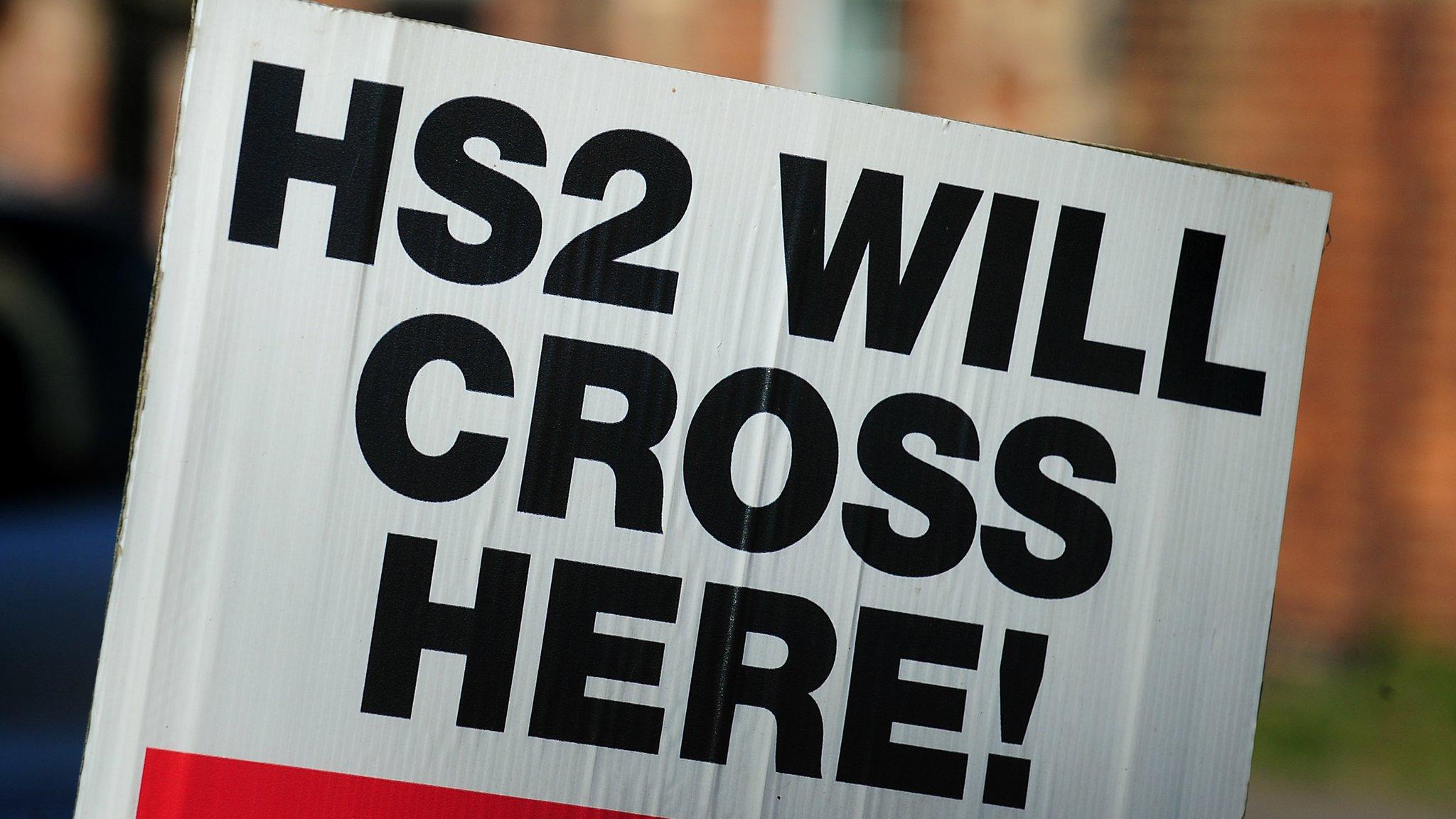
- Published24 January 2019
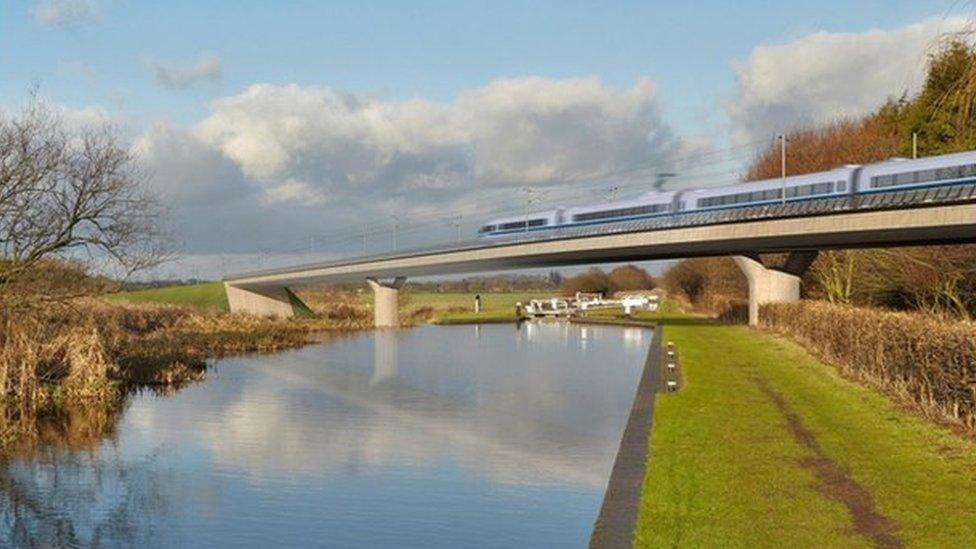
- Published1 March 2019
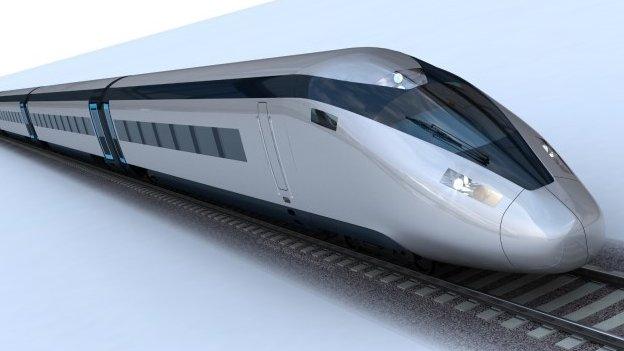
- Published18 April 2019
